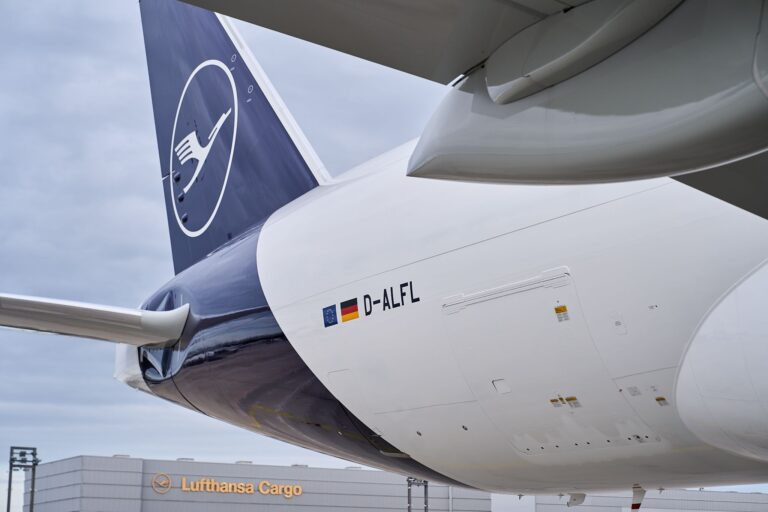- Cargo Human Care, founded at Nairobi’s Mother’s Mercy Home, provides medical treatment, education, and vocational training to thousands across Kenya, with 99% of donations going directly to beneficiaries.
- The organisation’s clinic delivered over 40,000 treatments last year, supported by 35 volunteer doctors, 70 active supporters, and 26 local staff members.
- A new Business Partnership Programme for Humanity allows companies to sponsor medical care, schools, and vocational projects, with tiered engagement and dedicated support managers.
- Practical support, such as transporting donated equipment, is encouraged alongside financial contributions, highlighting the cargo industry’s role in impact delivery.
- Projects include schools, youth residences, and clean water initiatives, with a focus on sustainable development and long-term independence for beneficiaries.
In Nairobi, the Mother’s Mercy Home stands quietly as a symbol of resilience. For more than two decades, this orphanage has been a sanctuary for children without families. It was here that the roots of Cargo Human Care were planted, and from there, a network of humanitarian projects has since grown across Kenya. What began as a small, volunteer-driven initiative has become a lifeline of medical treatment, education, and long-term opportunity for thousands of people.
At the heart of this effort lies a simple idea: solidarity. Access to healthcare, schooling, or even clean water is not a given in many parts of Kenya. Yet, with modest resources, extraordinary results are being achieved. “With just twenty-one euros, you can take care of one person for one year for medical treatment,” explained retired captain and founder of Cargo Human Care, Fokko Doyen. “Almost nobody in Kenya has health insurance. That is why our medical centre is so essential.”
The scale of need is daunting. In the past year alone, the organisation’s clinic near Nairobi carried out more than 40,000 treatments for patients unable to pay for care elsewhere. Thirty-five volunteer doctors, alongside around seventy active supporters, form the backbone of this service. Local employment is also central: twenty-six Kenyan staff members keep daily operations running. The impact stretches far beyond the clinic, into education and training for over 300 young people supported in apprenticeships and university programmes.
What distinguishes this model is its efficiency. Administrative costs are kept to just 0.3 percent. “From one euro, more than ninety-nine cents reaches the people directly,” Doyen noted. “This is very effective, and it’s what motivates us to keep going.”
Building bridges through business
Until now, much of Cargo Human Care’s support has come from individual donors and families. But the organisation is looking outward, seeking to connect humanitarian work with the corporate world in a structured way. Speaking in Frankfurt, Norbert Pahlsmeyer, head of cooperations at Lufthansa Cargo and a key supporter of the charity, outlined a new vision: the Business Partnership Programme for Humanity.
“This is a kind of world premiere,” Pahlsmeyer said. “We want to improve lives together with the cargo industry. Private sponsors have supported us for years, but we are not so strong in the corporate environment. With this programme, companies can engage in a shared responsibility approach.”
The initiative offers different levels of involvement, from sponsoring medical treatments to supporting schools or vocational training centres. “For example, at the bronze tier, a company could sponsor ten medical partnerships, or support a school. At gold level, they might fund multiple schools or specific projects, even having their name on buildings if they wish,” Pahlsmeyer explained. Each partner will also receive a dedicated manager to ensure their engagement is meaningful and effective.
Beyond financial donations, practical support is equally valuable. At present, for example, the charity is seeking help transporting donated computers from Germany to Kenya. “This is where the industry can really make a difference,” Pahlsmeyer urged. “We need partners who can step in and help us get resources where they are needed most.”
He also touched on the broader cultural shift within businesses. “My daughter would never work for an airline, not unless it offered some kind of social responsibility. Young people want purpose, they want to see that their company is giving back. This programme gives companies a chance to demonstrate exactly that.”
A vision for sustainable impact
The projects already underway in Kenya illustrate both the scope and ambition of Cargo Human Care’s work. Alongside the Mother’s Mercy Home and the medical centre, there is the John Kahenya Residence, which houses over sixty-five young adults in training or higher education. Schools have been established in Nairobi and northern Kenya, including the Happy Child Education Centre, Wings Academy, and Ilazar Girls High School, which educates around 400 students.
Water scarcity has also been addressed. A project near Marsabit provides clean water to around 8,000 people, while plans for a vocational training centre aim to equip the next generation with practical skills for long-term independence. “Sustainability is our focus,” Doyen stressed. “We are not only treating immediate needs, but building futures.”
Funding, however, remains a constant challenge. Running costs now stand at around €680,000 a year. Events such as the Barockstadt Lauf charity run, which draws almost 1,000 participants annually, provide vital contributions. This year’s proceeds will go towards building a new school for girls in northern Kenya. Symbolically, one of Lufthansa Cargo’s aircraft carries a special livery featuring artwork painted by Doyen’s wife, depicting children from the orphanage – a flying ambassador for the cause.
The new partnership programme seeks to build on these foundations, ensuring long-term stability through deeper corporate engagement. “We offer fifteen years of experience as a charity organisation,” Pahlsmeyer said. “Low overhead, sustainable development, projects that make a tangible difference. We give companies an opportunity to join us in creating impact that lasts.”
For both men, the call is clear: collaboration is not just desirable, it is essential. “Together, we can move more,” Doyen concluded. “This is not just a slogan. It is the reality of how lives are changed. Alone, we can do a lot. But together, we can do so much more.”





